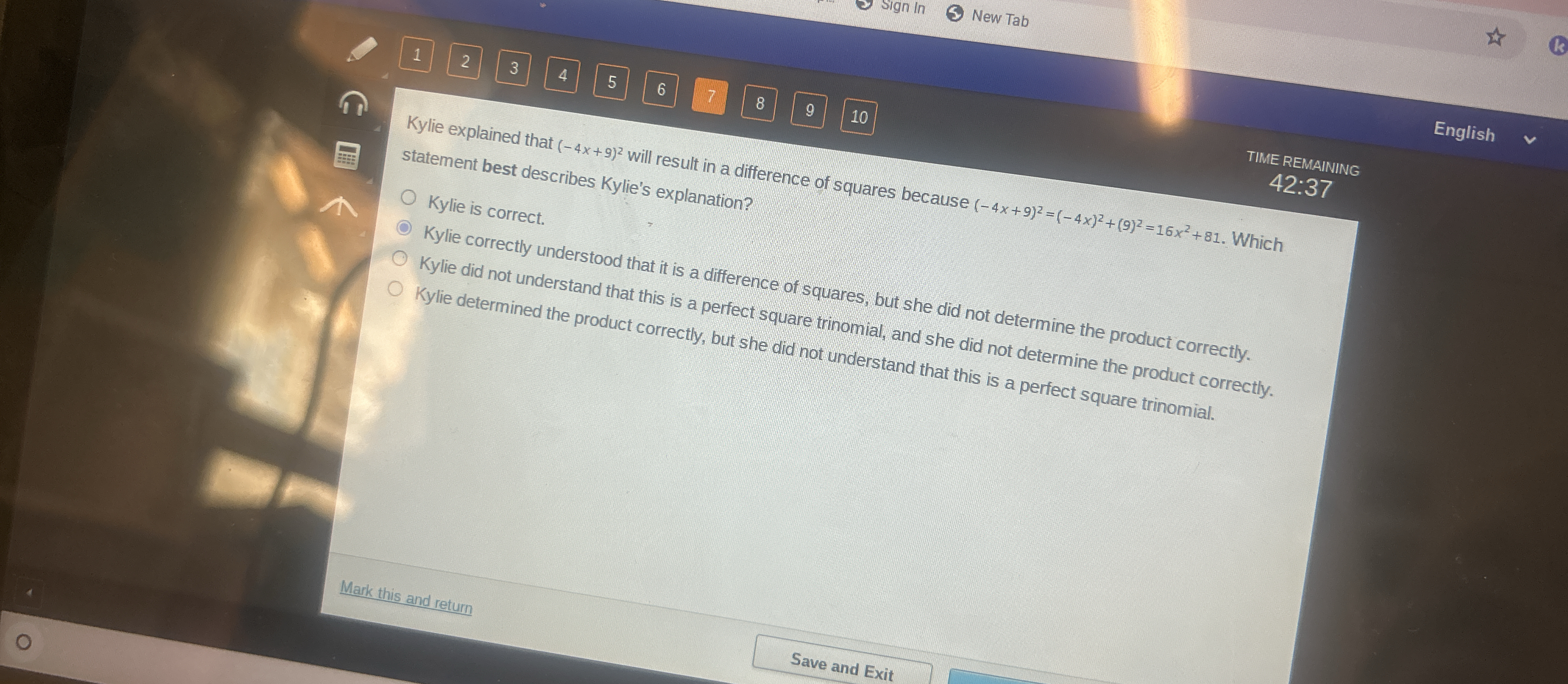Kylie explained that (-4x + 9)² will result in a difference of squares because (-4x + 9)² = (-4x)² - (9)² = 16x² - 81. Which statement best describes Kylie's explanation?

Understand the Problem
The question is asking for an evaluation of Kylie's explanation regarding the mathematical expression (-4x + 9)². We need to determine which of the provided statements best describes her understanding and correctness about it resulting in a difference of squares.
Answer
Kylie did not understand that this is a perfect square trinomial.
Answer for screen readers
Kylie did not understand that this is a perfect square trinomial.
Steps to Solve
- Identify the Expression and Its Meaning
The expression given is $(-4x + 9)^2$. This is not a difference of squares but rather a perfect square trinomial.
- Understand Perfect Square Trinomials
A perfect square trinomial can be expressed as $(a + b)^2 = a^2 + 2ab + b^2$. In our case, $a = -4x$ and $b = 9$.
- Expand the Perfect Square Trinomial
Using the formula for a perfect square trinomial, we expand: $$ (-4x + 9)^2 = (-4x)^2 + 2(-4x)(9) + 9^2 $$ Calculating each part:
- $(-4x)^2 = 16x^2$
- $2(-4x)(9) = -72x$
- $9^2 = 81$
Combining these gives: $$ 16x^2 - 72x + 81 $$
- Conclusion on Kylie's Explanation
Kylie claimed that $(-4x + 9)^2$ results in a difference of squares, which is incorrect. It is a perfect square trinomial.
Kylie did not understand that this is a perfect square trinomial.
More Information
Kylie's mistake lies in misclassifying the expression. A difference of squares takes the form $a^2 - b^2$, which is clearly not applicable here since $(-4x + 9)^2$ is a perfect square.
Tips
- Confusing perfect square trinomials with differences of squares.
- Not applying the correct formula for binomial squares.
AI-generated content may contain errors. Please verify critical information